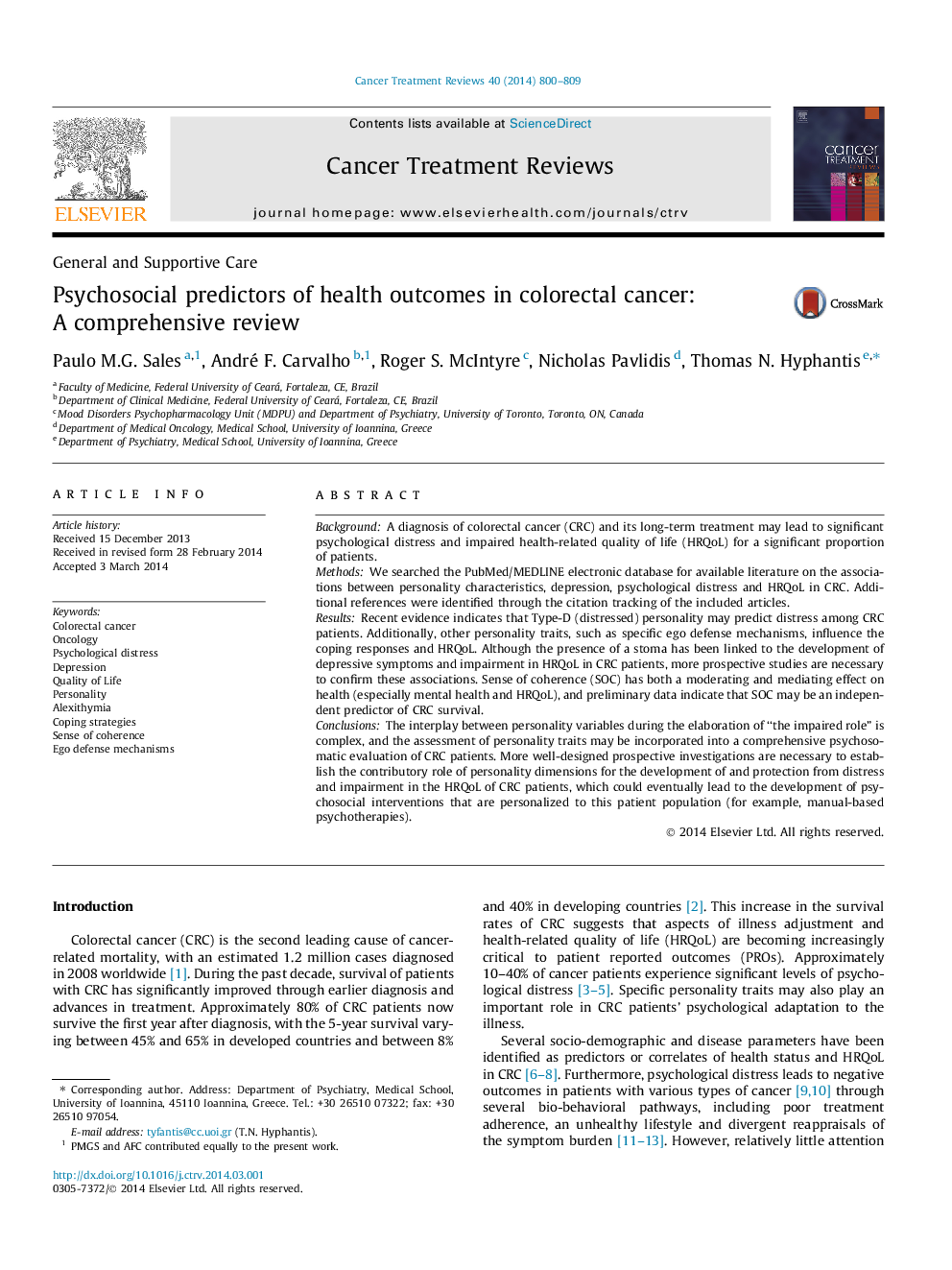| Article ID | Journal | Published Year | Pages | File Type |
|---|---|---|---|---|
| 6190513 | Cancer Treatment Reviews | 2014 | 10 Pages |
BackgroundA diagnosis of colorectal cancer (CRC) and its long-term treatment may lead to significant psychological distress and impaired health-related quality of life (HRQoL) for a significant proportion of patients.MethodsWe searched the PubMed/MEDLINE electronic database for available literature on the associations between personality characteristics, depression, psychological distress and HRQoL in CRC. Additional references were identified through the citation tracking of the included articles.ResultsRecent evidence indicates that Type-D (distressed) personality may predict distress among CRC patients. Additionally, other personality traits, such as specific ego defense mechanisms, influence the coping responses and HRQoL. Although the presence of a stoma has been linked to the development of depressive symptoms and impairment in HRQoL in CRC patients, more prospective studies are necessary to confirm these associations. Sense of coherence (SOC) has both a moderating and mediating effect on health (especially mental health and HRQoL), and preliminary data indicate that SOC may be an independent predictor of CRC survival.ConclusionsThe interplay between personality variables during the elaboration of “the impaired role” is complex, and the assessment of personality traits may be incorporated into a comprehensive psychosomatic evaluation of CRC patients. More well-designed prospective investigations are necessary to establish the contributory role of personality dimensions for the development of and protection from distress and impairment in the HRQoL of CRC patients, which could eventually lead to the development of psychosocial interventions that are personalized to this patient population (for example, manual-based psychotherapies).
